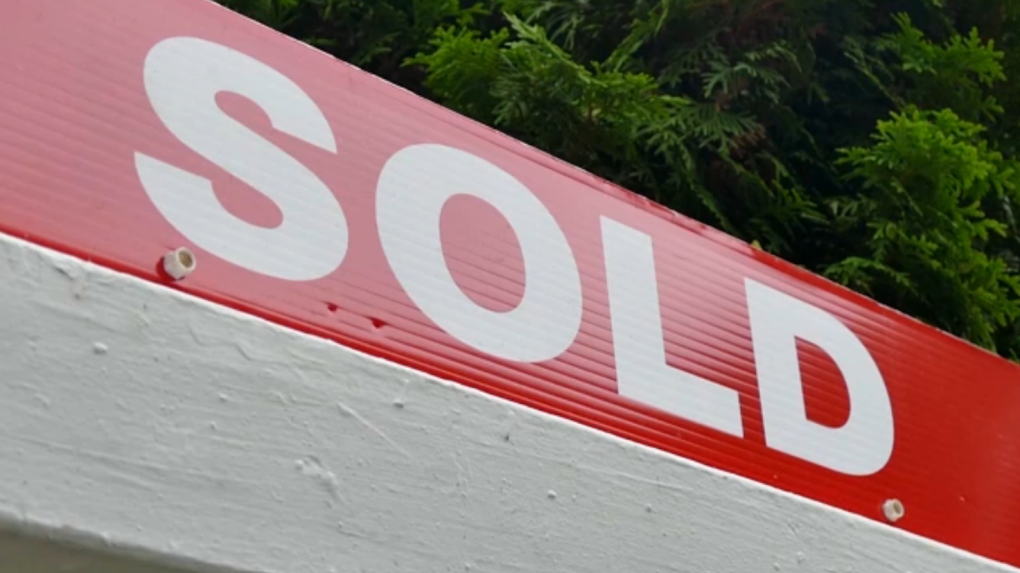B.C. court orders woman to forfeit $150K deposit after she backed out of home purchase due to foreign buyers tax

The would-be buyer of a nearly $3 million home on Vancouver's west side, who backed out of the purchase after learning B.C.'s foreign buyers tax would apply to her, has been ordered to forfeit her deposit.
Hongxia Zhang agreed to purchase the home on West 4th Avenue in Vancouver's West Point Grey neighbourhood in March 2021, according to a B.C. Supreme Court decision issued Friday and posted online Monday.
The completion date for the purchase was scheduled for April 26, 2021, but a few days before then, Zhang's lawyer asked to delay the sale until the buyer "became a permanent resident of Canada," wrote Justice Carla L. Forth in her summary of the facts.
The seller declined to extend the completion date, and asked – through her lawyer – to recover the $150,000 deposit Zhang had paid in trust to her realtor, YVR International Realty.
Lawyers for the seller, Anne Nijola Ambroziewicz, made two more demands for the deposit before filing a civil lawsuit to recover it on Oct. 13, 2021.
In her defence, Zhang argued that she had been misled by her realtor and believed that the foreign buyers tax would not apply to her if she had been granted a Confirmation of Permanent Residence by Immigration, Refugees and Citizenship Canada.
"She claims she did not learn until after she paid the deposit, but before the completion date, that she needed to be in Canada before the completion date to avoid the foreign buyer tax," Forth wrote in her decision.
"Ms. Zhang explained that since she was in Hong Kong, she had to apply for a travel exemption, which was refused by Immigration, Refugees and Citizenship Canada. As a result, she was not able to be in Canada at the time of the completion date."
The would-be buyer argued that this constituted "force majeure," a legal term referring to "an extraordinary event or circumstance beyond the control of the parties." Essentially, she argued that the fact that she was not allowed to come to Canada made it impossible for her to complete the contract without an extension.
Forth rejected this argument, however, noting that there was no force majeure clause in the contract. The judge also noted that Zhang's alternative argument – that the contract was "frustrated" by her inability to move to Canada – did not hold up.
For the legal principle of frustration to come into play, Forth wrote, "there must be a change in the significance of the obligation that the thing undertaken would, if performed, be a different thing from that contracted for."
"The application of the foreign buyer tax to the transaction did not alter the 'nature or purpose' of Ms. Zhang’s contractual obligation," the judge wrote. "While it did make the contract more expensive for Ms. Zhang, it did not render the contract 'radically different' from what it would have been had the tax not applied."
Forth ordered Zhang to forfeit her deposit and ordered YVR International Realty to pay it, and the interest it has accrued while being held in trust, to Ambroziewicz. The judge also ordered Zhang to pay the plaintiff's legal costs.
The loss of the $150,000 deposit still amounts to substantially less than Zhang would have owed under the foreign buyers tax had she completed her purchase. Homes purchased by foreigners in Metro Vancouver are subject to an additional 20 per cent property transfer tax, which would have amounted to $590,000 in Zhang's case.
CTVNews.ca Top Stories

Poilievre's Conservatives still in majority territory: Nanos seat projections
The Liberals' promise of a temporary GST break and $250 rebate cheques haven't benefited Prime Minister Justin Trudeau and his minority government when it comes to public support, according to Nanos Research data.
Investigators search for motive in killing of UnitedHealthcare CEO as suspect's attorney denies client's involvement
Investigators are searching for a motive in the assassination of UnitedHealthcare CEO Brian Thompson as murder suspect Luigi Mangione fights his extradition to New York from Pennsylvania, where police detained him at a McDonald's on Monday.
Tensions rising between Canada Post, union as strike nears four-week mark
Canada Post and the union representing postal workers are in a war of words as a countrywide strike enters its 27th day.
New Vancouver mom temporarily discharged from hospital to see Taylor Swift concert
A Vancouver woman didn’t let an emergency C-section keep her from Saturday’s Taylor Swift concert.
'He lost his spirit': Family wants answers after Indigenous man's braids cut at Edmonton hospital
The Saskatchewan family of an Indigenous man whose braids were cut off during a stay at the Royal Alexandra Hospital, without permission, is searching for answers.
BoC widely expected to cut interest rates today, odds leaning toward half-point cut
The Bank of Canada is set to make its final interest rate announcement of the year this morning.
What financial experts wish you knew about divorce
Divorce is a major financial reset, yet also one of the worst times to make a lot of important decisions, according to financial experts.
Trudeau highlights Kamala Harris presidential defeat as an attack on women's progress
Prime Minister Justin Trudeau says women's rights and women's progress is under attack, pointing to the recent defeat of U.S. presidential candidate Kamala Harris as an example.
A Lebanese man who spent 32 years in Syrian prisons is welcomed home
Suheil Hamwi spent 32 years in a Syrian prison, and now, after an offensive by insurgents that toppled the government of Bashar Assad, he's finally returned to his home in Lebanon.

































